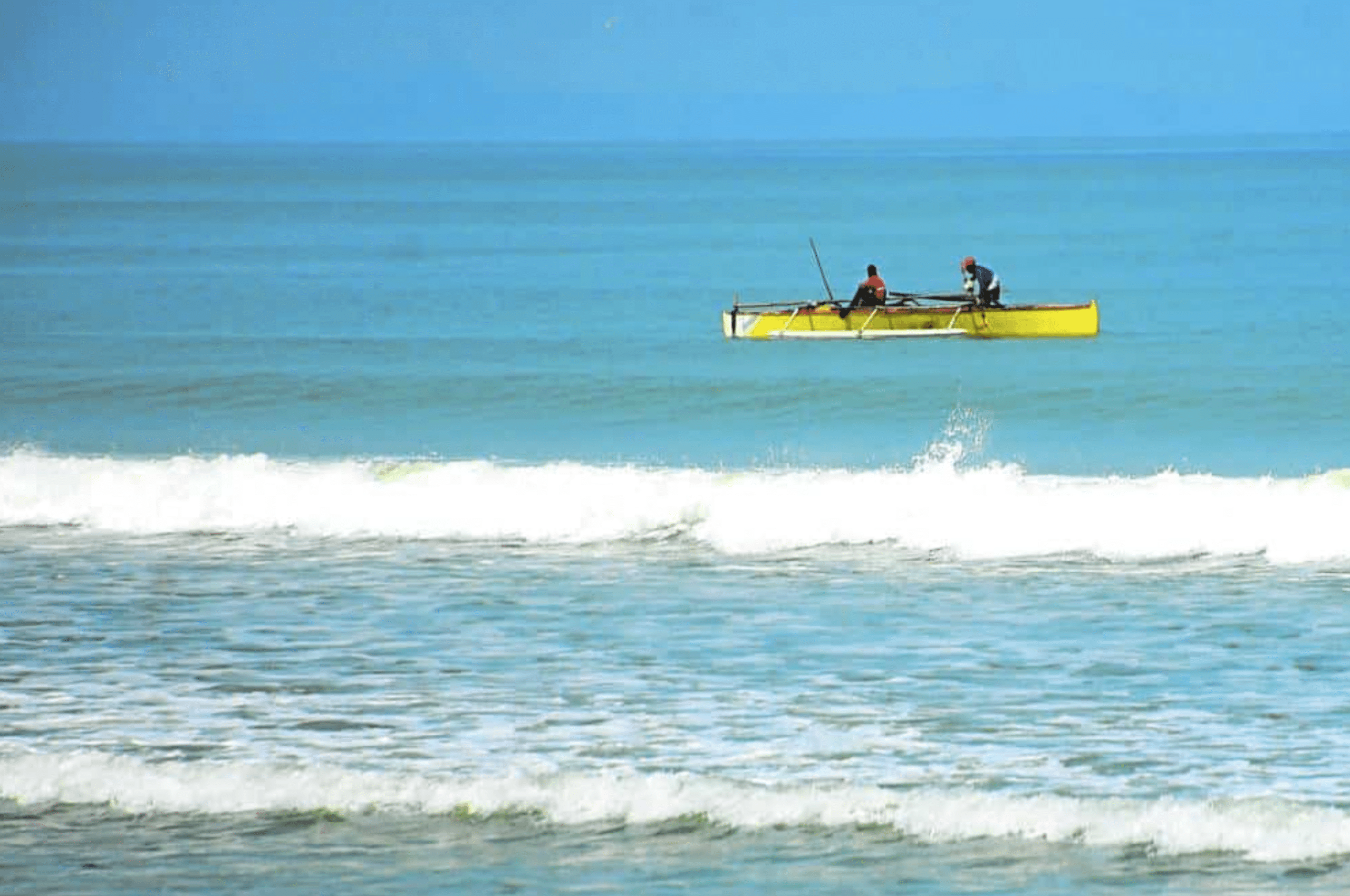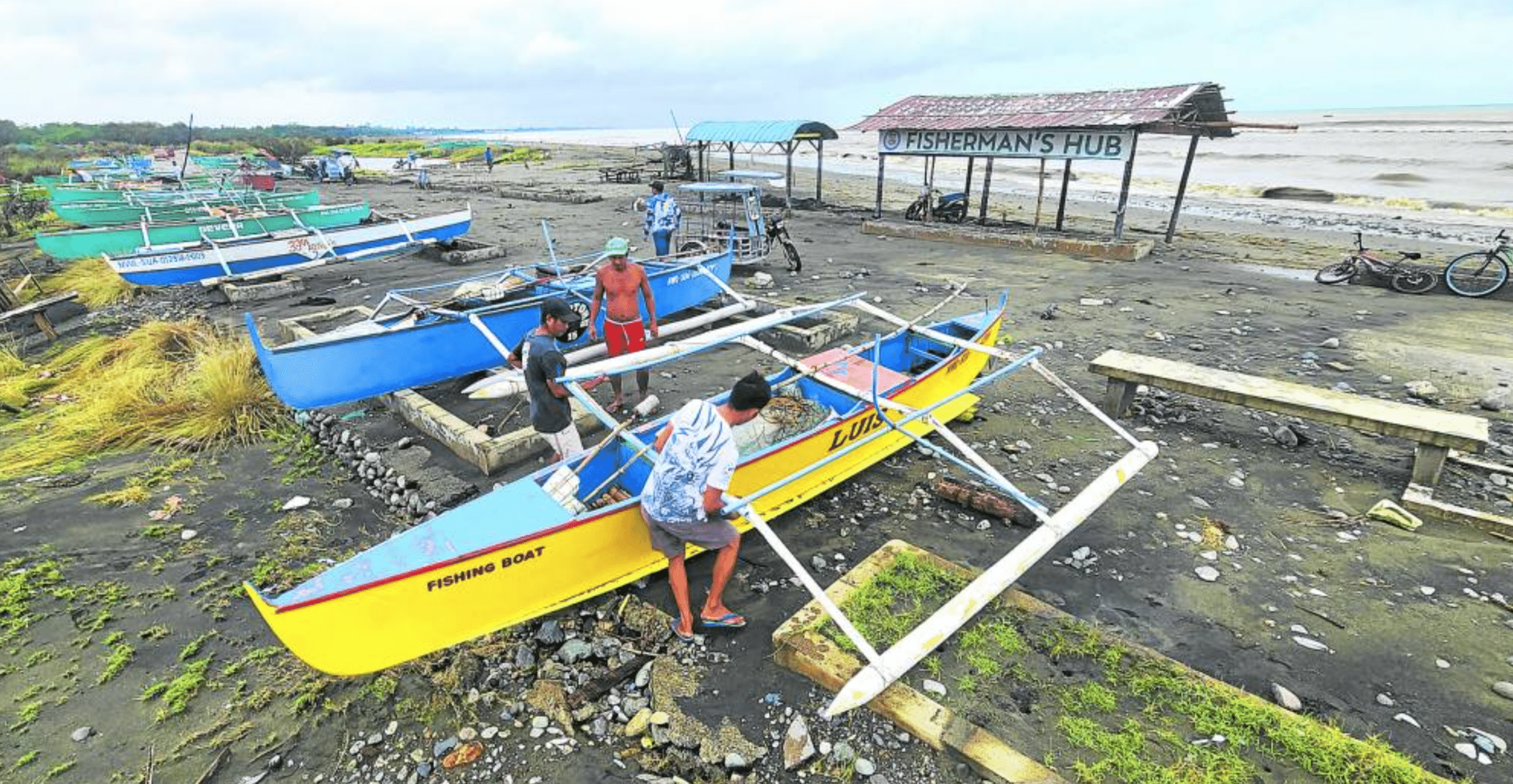Groups to SC: Protect rights of small fishers

TOILING AT SEA Fishermen from Binmaley town in Pangasinan province, in this photo taken in October 2024, set out for the day’s fishing trip in municipal waters using a small banca hoping to bring enough catch to feed their families. —WILLIE LOMIBAO
MANILA, Philippines — Environmental group Oceana, together with fisherfolk and civil society groups, on Thursday filed a petition in the Supreme Court to intervene in the case against a commercial fisher, challenging the constitutionality of preferential access granted to municipal fisherfolk within the 15-kilometer municipal waters.
In a resolution dated Aug. 19, 2024, Oceana said that the Supreme Court’s First Division ruled in favor of Mercidar Fishing Corp., affirming a lower court’s decision that provisions of the Fisheries Code — specifically those imposing a 15-km municipal water boundary prioritizing municipal fisherfolk and regulating commercial fishing activities — were unconstitutional.
The high court upheld the Malabon Regional Trial Court’s (RTC) decision dated Dec. 11, 2023, citing that the Office of the Solicitor General (OSG) filed the petition “out of time” and failed to provide “any legal basis,” instead alluding to “policy considerations.”
In a 28-page petition on Thursday, Oceana urged the high court to reverse the resolution, remand the case for trial before the RTC, order Mercidar to implead all indispensable parties, and allow the intervention of citizen suits in the case.
The petitioners included the Philippine Movement for Climate Justice; Mayor Ithamar Espinosa, representing the municipality of Santa Fe, Cebu; Rowel Saldajeno, based in San Jose, Antique, and president of Funda Dalipe Fisherfolks Association and chair of the Municipal Fishery and Aquatic Resources Management Council; and Arnel Boholst, a municipal fisherfolk from Bacacay, Albay, and chair of the Lagonoy Gulf Integrated Fishery and Aquatic Resources Management Council; and the Regional Fisheries Training and Fisherfolk Coordination Division in Tabaco City.
Article continues after this advertisementThe petitioners argued that all proceedings and orders before the Malabon RTC Branch 170, including the decision dated Dec. 11, 2023, were void for violating due process and lack of jurisdiction due to the respondent’s failure to implead indispensable parties.
Article continues after this advertisement“Given the unusual breakneck speed of the proceedings before RTC Malabon Branch 170 under Judge Zaldy Docena, the nonjoinder of indispensable parties, and the sheer breadth of the issues involved that affect a large population, allowing intervention serves the ends of justice,” the petitioners said.
“In contrast, disallowing intervention only amplifies the injustices that have already been done in these proceedings,” they added.
Lament

LIVELIHOOD A group of small fishermen checks on their boats at Barangay Bonuan Binloc in Dagupan City in this photo taken last October. Fishermen in coastal towns and cities in Pangasinan province, many of them using nets and basic gears, rely on the bounty of Lingayen Gulf for their livelihood. —WILLIE LOMIBAO
In Zambales, small fishermen urged the provincial government to protect their right to fish in municipal waters.
Joey Marabe, coordinator of fisherfolk group Pamalakaya in Zambales, said some 20,000 registered fisherfolk from 12 coastal towns in the province would be affected if the decision to allow commercial vessels in the fishing grounds of local fishermen would be fully implemented.
“The small fishermen of Zambales, especially those driven by China in the West Philippine Sea, fear the increased influx of commercial fishing vessels in our traditional fisheries,” Marabe told the Inquirer.
Many fishermen in the province who used to venture in Scarborough Shoal, their traditional fishing ground in the West Philippine sea, now rely on municipal waters as they are barred from entering the shoal and after experiencing harassment by the China Coast Guard.
In La Union, George Cacayuran, 54, a fisherman from Agoo town, said that even before the ruling, commercial fishing vessels had been seen in their municipal waters.
According to Cacayuran, who also chairs Timek ken Namnaman Dagiti Babassit ti Mangala ti La Union (Timek), small fishing boats are only allowed 12 km from the shoreline but at least 100 commercial fishing boats are swarming 2 km from the shoreline or within the municipal waters. Timek is a small fisherfolk group with 5,000 members in La Union.
“They will catch and fine us when we cross but they allow the capitalists to compete with the fish we catch. Their catch for one day is equivalent to the catch of 300 small boats that spent 14 hours at sea,” Cacayuran said.
Alarmed
Pamalakaya sounded the alarm that roughly 90 percent of every fishing ground of small-scale fishermen in the country would be open for exploitation as the ruling would allow commercial fishers beyond municipal waters and deeper than 12.8 meters.
Ronnel Arambulo, vice chair of Pamalakaya, citing a study of marine scientists, said only 10 percent of municipal waters were less than 12.8 meters deep.
“This only means that only a few areas within the municipal waters will be left for small fishermen which has a serious impact not only on livelihood but also on the fish production and food security of each community,” said Arambulo.
He explained that small and large fishing boats could not be alongside each other while at sea because the equipment of municipal fishermen is relatively crude, compared to the modern equipment of commercial fishers.
“Often, commercial vessels use destructive fishing methods such as trawls and superlights. So apart from the impact on livelihood, the entry of commercial vessels into the marine resources of municipal waters will also be harmful,” Arambulo, added.
READ: Petition filed vs SC ruling on big-scale fishing in town waters
Pamalakaya urged Agriculture Secretary Francisco Tiu-Laurel Jr. to help fisherfolk assert their rights to the 15-km municipal waters.
“Small-scale fisherfolk are challenging the Department of Agriculture, as well as the Bureau of Fisheries and Aquatic Resources, to contest the Supreme Court ruling and ensure that the 15-km municipal waters would remain to the fishers,” Arambulo said in an earlier statement.